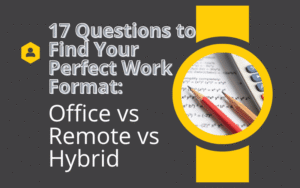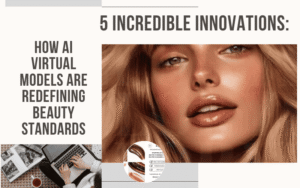Uncover your unique creative style and learn how to tap into your natural innovative abilities with this comprehensive creativity test
This creativity test reveals how your mind generates breakthrough ideas and transforms them into reality. Whether you’re solving everyday problems, designing solutions at work, or expressing yourself through art, you have a unique creative fingerprint waiting to be discovered and developed through targeted creativity assessment.
How This Revolutionary Creativity Test Works
This comprehensive creativity test explores four critical dimensions of creative thinking: how you generate ideas, how you develop them, what environments spark your innovation, and what obstacles might be holding you back. The assessment is based on psychological research on creativity measurement and proven frameworks used by creative professionals worldwide.
Answer each question based on your natural tendencies, not what you think you should do. This creativity test works by identifying your authentic creative patterns and preferences.
PART A: Idea Generation in Your Creativity Test
1. When you need a creative solution, you typically:
- A) Brainstorm extensively and explore many possibilities
- B) Look for patterns and connections in existing ideas
- C) Start experimenting immediately with whatever’s at hand
- D) Research thoroughly before attempting to create
2. Your best ideas usually come when you’re:
- A) In energetic, stimulating environments with lots of input
- B) Quietly observing and reflecting on your experiences
- C) Actively doing something unrelated to the problem
- D) Systematically working through the challenge step by step
3. When faced with a creative block, you:
- A) Seek inspiration from other people and external sources
- B) Take time to think deeply and let ideas percolate
- C) Switch to a different creative activity or take a break
- D) Analyze what’s blocking you and create a plan to overcome it
4. Your idea generation style is best described as:
- A) Rapid-fire brainstorming with lots of possibilities
- B) Slow-building insights that develop over time
- C) Spontaneous flashes of inspiration during action
- D) Methodical exploration of systematic approaches
5. When collaborating creatively, you prefer:
- A) High-energy group sessions with lots of interaction
- B) Quiet individual work followed by thoughtful sharing
- C) Hands-on collaborative building and experimenting
- D) Structured meetings with clear goals and processes
PART B: Creative Development Assessment
6. Once you have an idea, you typically:
- A) Get excited and want to share it immediately with others
- B) Spend time refining and perfecting it mentally first
- C) Start creating a prototype or rough version right away
- D) Plan out the implementation steps systematically
7. Your creative projects tend to:
- A) Evolve dramatically from start to finish
- B) Stay close to your original vision
- C) Change based on what works in practice
- D) Follow a planned progression toward your goal
8. When developing creative work, you work best:
- A) With feedback and input from others throughout the process
- B) Independently, sharing only when you’re ready
- C) Through trial and error with immediate testing
- D) Following a structured process with clear milestones
9. Your relationship with creative criticism is:
- A) You welcome it as fuel for more ideas
- B) You prefer constructive feedback from trusted sources
- C) You use it to improve the next iteration
- D) You appreciate specific, actionable suggestions
10. You feel most satisfied with creative work when:
- A) It generates excitement and engagement in others
- B) It expresses something meaningful and personal
- C) It solves a real problem or serves a practical purpose
- D) It meets your standards for quality and completeness
PART C: Creative Environment Evaluation
11. Your ideal creative space is:
- A) Busy, colorful, and full of inspiring objects
- B) Quiet, organized, and personally meaningful
- C) Flexible, with tools and materials easily accessible
- D) Clean, well-lit, and equipped with everything you need
12. You’re most creative when:
- A) You’re energized and around other creative people
- B) You have uninterrupted time to think and explore
- C) You’re relaxed and not pressured to perform
- D) You have clear objectives and sufficient resources
13. The time of day when you’re most creative is:
- A) When you’re most social and energetic
- B) During your natural quiet or reflective periods
- C) When you feel most relaxed and unpressured
- D) During your most focused and productive hours
14. Creative inspiration strikes you most often:
- A) During conversations and social interactions
- B) In solitude or peaceful environments
- C) While doing routine activities or exercising
- D) When you’re actively working on creative projects
15. Your creative process is most supported by:
- A) Variety, stimulation, and new experiences
- B) Consistency, routine, and protected time
- C) Freedom, flexibility, and minimal constraints
- D) Structure, resources, and clear expectations
Scoring Your Creativity Test Results
Count your responses for each letter:
- A answers: _____ (Energetic Explorer)
- B answers: _____ (Reflective Refiner)
- C answers: _____ (Spontaneous Builder)
- D answers: _____ (Systematic Creator)
Your dominant creative type is the letter with the highest count.

⚡ ENERGETIC EXPLORER
The Collaborative Innovator
You’re a high-energy creative who thrives on interaction, stimulation, and variety. Your creativity test results show you’re fueled by people, new experiences, and the excitement of sharing ideas. Research from Harvard Business Review confirms that collaborative creativity like yours drives innovation in teams.
Your Creative Strengths:
- Excellent at brainstorming and idea generation
- Natural ability to build on others’ ideas
- Comfortable with ambiguity and change
- Skilled at inspiring and energizing creative teams
- Able to see connections others might miss
Your Creative Challenges:
- May struggle with follow-through on projects
- Can be overwhelmed by too many possibilities
- Might neglect solitary reflection time
- May have difficulty with sustained focus
- Could benefit from more systematic development
🧘 REFLECTIVE REFINER
The Thoughtful Visionary
Your creativity test reveals you’re a deep, contemplative creative who produces carefully considered work. This aligns with research from Psychology Today showing that reflective thinking enhances creative quality and originality.
Your Creative Strengths:
- Ability to develop complex, nuanced ideas
- Strong sense of personal vision and authenticity
- Excellent at seeing deeper meanings and connections
- Skilled at refining and perfecting creative work
- Natural ability to create emotionally resonant content
🎨 SPONTANEOUS BUILDER
The Intuitive Maker
This creativity test identifies you as a hands-on creative who learns by doing and creates through experimentation. Studies from MIT’s Media Lab demonstrate that kinesthetic learning and building enhance creative problem-solving abilities.
Your Creative Strengths:
- Excellent at rapid prototyping and iteration
- Natural ability to work with physical materials
- Comfortable with failure and experimentation
- Skilled at finding creative solutions to practical problems
- Able to stay present and responsive to what emerges
📐 SYSTEMATIC CREATOR
The Strategic Architect
Your creativity test results show you’re a methodical creative who approaches innovation through planning and systematic development. This approach is validated by research from Stanford’s d.school on design thinking methodology.
Your Creative Strengths:
- Excellent at planning and executing complex creative projects
- Ability to research and synthesize information effectively
- Strong skills in systematic skill development
- Natural talent for creating sustainable systems and processes
- Skilled at bringing creative visions to completion
Advanced Creativity Test Applications for Personal Growth
Understanding your creativity test results enables targeted development strategies. According to research from Adobe, creative skills are becoming increasingly valuable in the modern workplace.
Type-Specific Development Strategies
For Energetic Explorers:
- Join creative communities and collaborative projects
- Practice focused work sessions with timers
- Develop systems for capturing and organizing ideas
- Find complementary partners for project completion
For Reflective Refiners:
- Schedule regular sharing of work-in-progress
- Set artificial deadlines to prevent over-polishing
- Seek out diverse perspectives and feedback
- Practice rapid prototyping exercises
For Spontaneous Builders:
- Create dedicated spaces for creative experimentation
- Develop simple systems for project tracking
- Practice reflection and documentation of learning
- Find ways to combine multiple interests into projects
For Systematic Creators:
- Schedule unstructured creative exploration time
- Practice rapid ideation techniques
- Collaborate with more intuitive creative types
- Celebrate process innovations as creative wins
Universal Creative Practices from Creativity Test Research
Based on extensive creativity test data and neuroscience research, these practices enhance creative capacity across all types:
Daily Creativity Habits:
- Carry a creativity capture tool (notebook, app, voice recorder)
- Engage in one small creative act daily
- Consume creative content outside your field
- Practice mindfulness to enhance creative awareness
Weekly Creative Rituals:
- Protect time for your optimal creative work
- Expose yourself to new experiences and perspectives
- Reflect on your creative process and insights
- Connect with other creative people
Monthly Creative Challenges:
- Try a new creative medium or technique
- Take on a project outside your comfort zone
- Seek feedback on your creative work
- Review and celebrate your creative growth
Applying Your Creativity Test Results in Different Life Areas
Creative Problem-Solving at Work:
Research from McKinsey & Company shows that creativity is a top skill for future career success.
- Energetic: Facilitate team brainstorming sessions
- Reflective: Propose thoughtful, innovative solutions
- Spontaneous: Quickly prototype and test ideas
- Systematic: Develop creative frameworks and processes
Creative Expression:
- Energetic: Collaborative art, performance, storytelling
- Reflective: Writing, photography, contemplative arts
- Spontaneous: Crafts, cooking, improvisation
- Systematic: Design, architecture, systematic skill building
Measuring Your Creativity Test Progress
Quantitative Measures:
- Number of creative projects started and completed
- Frequency of creative activities and sessions
- Variety of creative mediums and techniques explored
- Amount of creative work shared with others
Qualitative Measures:
- Increased comfort with creative uncertainty
- Greater ability to generate original ideas
- Improved skills in your chosen creative areas
- Enhanced ability to see creative possibilities in daily life
Your Creativity Test Action Plan
This Week:
- Identify your dominant creative type from this creativity test
- Try one new creative activity aligned with your type
- Set up your optimal creative environment
- Begin a daily creative practice
This Month:
- Work on a creative project using your type’s strengths
- Address one of your type’s common creative blocks
- Connect with other creative people
- Experiment with techniques from other creative types
This Quarter:
- Complete a significant creative project
- Share your creative work with others
- Develop skills in complementary creative approaches
- Reflect on and celebrate your creative growth
Conclusion: Unleashing Your Creativity Test Results
This creativity test reveals that innovation isn’t a rare gift reserved for artists and inventors—it’s a fundamental human capacity that manifests differently in each person. Your creativity test results provide a roadmap for working with your natural creative rhythms while remaining open to growth and experimentation.
Remember, your creativity test type is not a limitation but a starting point for understanding how to optimize your creative process. According to research from Teresa Amabile at Harvard, the most successful creative individuals understand and leverage their natural creative patterns.
The key insight from any comprehensive creativity test is that everyone has creative potential—it simply needs the right conditions to flourish. Your creative capacity grows stronger with intentional use and practice, regardless of your starting creativity test results.
Your creative potential is limitless—this creativity test is simply the beginning of your journey to unlock it.





Pingback: 17 Questions to Find Your Perfect Work Format: Office vs Remote vs Hybrid - Lady Vibe Style